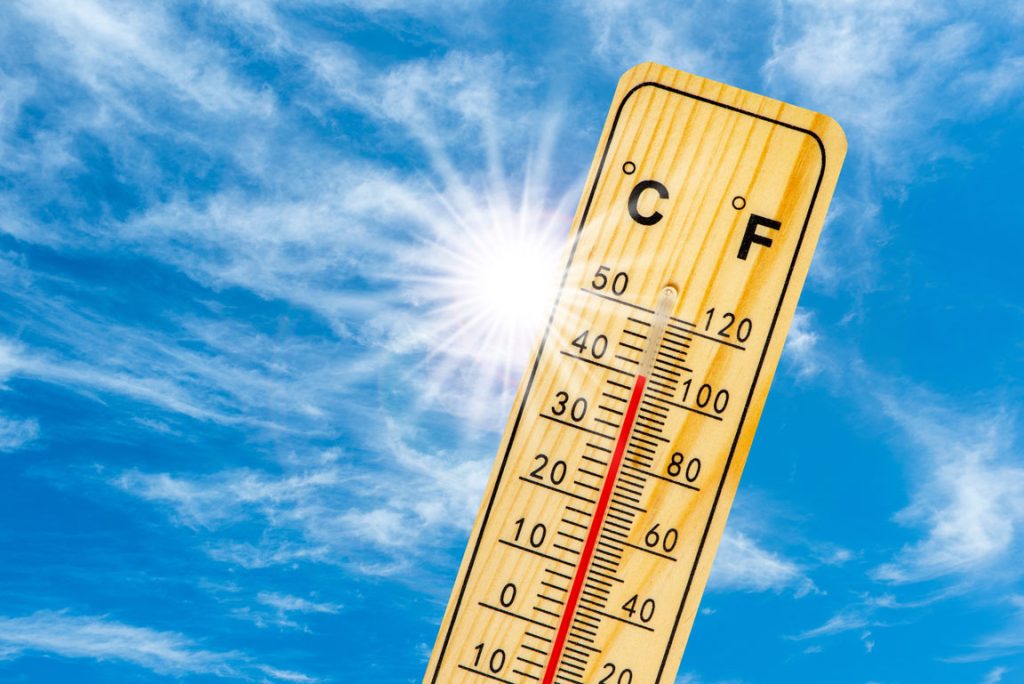This summer, temperature records continue being broken throughout the US and other regions worldwide. Additionally, humidity levels are reaching record highs in many areas. This article provides information on how heat impacts your health and tips for keeping you safe in extreme temperatures.
Heat & Health Trends
Extreme summer heat is increasing in the United States. Climate projections indicate that extreme heat events will be more frequent and intense in coming decades. However, some heat-related illness and death risks have diminished in recent decades, possibly due to better forecasting, heat-health early warning systems, and increased access to air conditioning for the U.S. population. Despite this, extreme heat events remain a cause of preventable death nationwide.

Heat-Related Illness & Deaths
Hot weather is associated with an increase in heat-related illnesses, including cardiovascular and respiratory complications, renal failure, electrolyte imbalance, kidney stones, negative impacts on fetal health, and preterm birth. Specifically, death rates are noted to rise during and after heat waves. Deaths result from
- heat stroke and related conditions,
- cardiovascular disease,
- respiratory disease, and
- cerebrovascular disease.

Heat Stroke
As the most dangerous heat-related sickness, heat stroke requires prompt medical attention. Ceasing the body’s ability to cool down naturally, the body temperature of an individual suffering from a heat stroke may rise upwards of 105°F in under 15 minutes.
Warning signs of heat stroke vary but may include the following:
- An extremely high body temperature (above 103°F)
- Red, hot, and dry skin (no sweating)
- Rapid, strong pulse
- Throbbing headache
- Dizziness
- Nausea
- Confusion
- Unconsciousness
If you observe someone who may be having a heat stroke, you should call emergency services. You should also take steps to mitigate their symptoms by assisting them to a sheltered area and applying cool water to their body if possible.
Staying Safe in Hot Weather
Take measures to stay cool, stay hydrated, and stay informed. Getting too hot can make you sick. You can become ill from the heat if your body can’t compensate for it and properly cool you off. The main things affecting your body’s ability to cool itself during extremely hot weather are:
- High humidity. When the humidity is high, sweat won’t evaporate as quickly. This keeps your body from releasing heat as fast as it may need to.
- Personal factors. Age, obesity, fever, dehydration, heart disease, mental illness, poor circulation, sunburn, and prescription drug and alcohol use all can play a role in whether a person can cool off enough in very hot weather.
Those who are at highest risk include people 65 and older, children younger than two, and people with chronic diseases or mental illness.

Everyone should take these steps to prevent heat-related illnesses, injuries, and death during hot weather:
- Stay in an air-conditioned indoor location as much as you can.
- Drink plenty of fluids even if you don’t feel thirsty.
- Schedule outdoor activities carefully.
- Wear loose, lightweight, light-colored clothing and sunscreen.
- Pace yourself.
- Take cool showers or baths to cool down.
- Check on a friend or neighbor and have someone do the same for you.
- Never leave children or pets in cars.
- Check the local news for health and safety updates.
